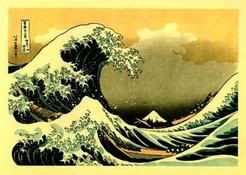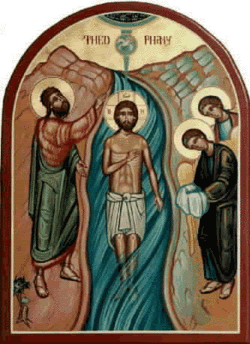 My father lived most of his life on a beach. Once I visited his hometown in the Philippines and climbed up a ladder into a small beach hut on stilts made of bamboo shoots and banana leaves where a cousin I just met taught me to play chess. Every day my father and my brother would wade out into the ocean, and I would watch from the hut, never once venturing out into the water even though the days were mild and the ocean calm.
My father lived most of his life on a beach. Once I visited his hometown in the Philippines and climbed up a ladder into a small beach hut on stilts made of bamboo shoots and banana leaves where a cousin I just met taught me to play chess. Every day my father and my brother would wade out into the ocean, and I would watch from the hut, never once venturing out into the water even though the days were mild and the ocean calm.
Many years before when I was a child, I went to the beach with my parents. We lived in Los Angeles then, and the beaches there are nothing like the beaches here in the Bay Area. The days were usually warm, if not hot, and the beaches were wide and inviting. You could watch the planes flying into LAX during the day and build a bonfire at night.
One summer day at the beach, my father took me out into the ocean. Hand in hand, we waded through each wave as the water crept up higher and higher until I was straining on tip-toe to feel the sandy bottom. Eventually I couldn’t reach the bottom any longer, yet we continued on as I wrapped my arms around my father’s neck. Finally, he too was treading the water as he led me to a small group of other swimmers. It felt like we were out in the middle of the ocean, the beach a distant line. I couldn’t comfort myself with the feeling of standing on my own legs and I couldn’t see the safety of the beach any longer. And I began to panic, grabbing my father’s neck so tightly that he couldn’t keep both of us afloat. I found myself underwater struggling to get my head back above it. As I broke through the surface I groaned and gasped for air, even though I couldn’t have been under water for more than a few seconds. The other swimmers nearby laughed as I cried and demanded that my father take me back to the beach.
To this day, I still have dreams of being submerged under water, and I still don’t go out into the ocean.
Each of us probably has some memorable experience of water—learning to swim, jumping off the high board, bubble baths and rubber ducks, water balloon fights and crossing the Golden Gate for the first time. Most of the time, water is a source of joy, refreshment, life, pleasure. Then other times, it kills and frightens. In these last two weeks, my nightmare of drowning became a reality for 150,000 people, and some of the poorest places on the planet were destroyed by the simple power of water.
 This Sunday, we end our Christmas season in water. California is right now being blasted with the second major storm of the winter, and the liturgical calendar places Jesus in the middle of the Jordan river. The silent night of Christmas has become a tempest and the child in a manger is now a man on mission. Perhaps nature and the liturgical calendar are conspiring to teach us a deeper meaning of Christmas. As comforting as the nativity scene is, as safe as the beach feels, as warm as our beds are on blustery winter mornings, we can’t stay there. The Christ cannot remain a baby in our religious imaginations, we can no longer take for granted the force of water to change our world, and we cannot simply retreat back into our “usual” pre-Christmas routine as though the Incarnation had been just a “time out” from our normal lives.
This Sunday, we end our Christmas season in water. California is right now being blasted with the second major storm of the winter, and the liturgical calendar places Jesus in the middle of the Jordan river. The silent night of Christmas has become a tempest and the child in a manger is now a man on mission. Perhaps nature and the liturgical calendar are conspiring to teach us a deeper meaning of Christmas. As comforting as the nativity scene is, as safe as the beach feels, as warm as our beds are on blustery winter mornings, we can’t stay there. The Christ cannot remain a baby in our religious imaginations, we can no longer take for granted the force of water to change our world, and we cannot simply retreat back into our “usual” pre-Christmas routine as though the Incarnation had been just a “time out” from our normal lives.
The Christmas season, like the baptismal water into which we were drowned and out of which we were resurrected, is meant to change us and move us out into mission. Our gift-giving of the Christmas season now must become the daily sacrifice of love on behalf of those who are unloved. Our evergreens, dried out and discarded, must be transformed into a constant concern for the circle of all life and an appreciation for the resources of our planet. The candles and lights and holiday decorations that adorned our homes must become the mantle of joy and hope that now clothes our hearts throughout the year. And the wishes for peace sung in carols and proclaimed in Christmas cards now must become the hard work for justice in all our endeavors.
Ultimately Christmas is not for children. It is for the adults who have waded through the waters of tumultuous fear and uncertainty and yet still cling to hope, believing in the promise of peace, working for the dream of justice, and moving ever nearer to the reality of God’s reign.
In this week’s DSJ Liturgy Notes, you’ll find:
- Upcoming Events and Workshops
- Catechumenate Support Group – January 13
- Creating Sacred Space – January 13
- Cantor Workshop – January 25
- Vino & Vespers – January 28
- Liturgical Coordinators’ Gathering – February 1
- Diocesan 25th and 50th Wedding Anniversary Mass – February 5
- Rite of Election – 2005
- What Christmas Carols Teach
- Six Undervalued Carols
- Pope Paul VI Awards
- Finding God in Thailand
- Welcome to Sandra Pacheco!
- Classifieds: Seek and Ye Shall Find
Next time you dip your hand into the baptismal font, think of all the ways water has touched your life. And when you touch that holy water to your forehead, breast and shoulders in the sign of faith, recommit yourself to plunging fully into the joys, fears, hopes, and resurrections of daily life.
Diana Macalintal
Associate for Liturgy
FILED UNDER: OPENING ARTICLES
No comments:
Post a Comment